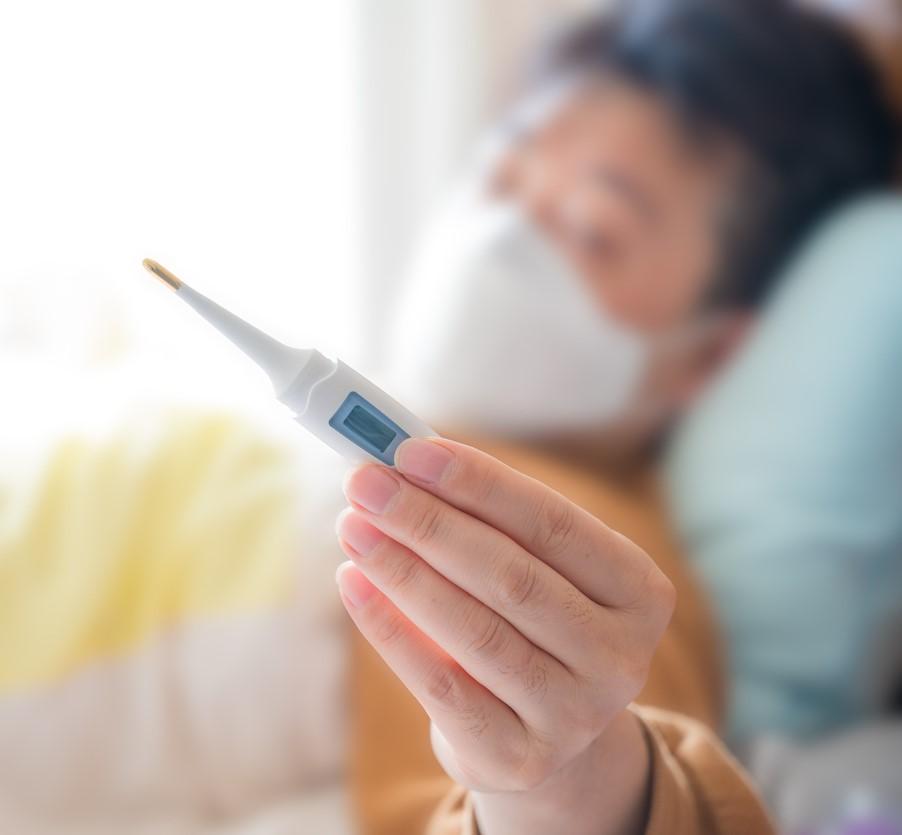Last week global COVID-19 cases, as well as deaths, continued to decline, except for parts of Asia that are experiencing later Omicron variant surges, the World Health Organization (WHO) said yesterday in its weekly update.
The agency also provided an update on risk from the more transmissible BA.2 Omicron subvariant, which it says is now dominant in 18 countries, and announced the establishment of a biotechnology training hub slated for South Korea. Also, Sanofi announced it is ready to submit the COVID-19 vaccine it developed with GSK for regulatory approval.
BA.2 gains ground as cases drop
The world's cases declined 21% last week over the previous week, continuing a 3-week decline. Deaths dropped 9% compared with the week before.
Both cases and deaths continue to rise in the WHO's Western Pacific region, however, led by surges in South Korea, Hong Kong, New Zealand, and Brunei.
South Korea today reported a new record of more than 170,000 new cases, with infections in Hong Kong and Singapore also breaking daily records.
Of 12 million cases reported across the globe last week, the five countries with the most were Russia, Germany, Brazil, the United States, and South Korea.
Genetic sequencing suggests that 99.1% of the world's cases involve the Omicron variant, with the BA.2 lineage now dominant in 8 additional countries, raising the total to 18.
The WHO's virus evolution advisory group met this week to discuss Omicron variant developments, including BA.2 and other sublineages. In a statement, the group said BA.2 should continue to be classified as Omicron.
In examining the differences between the original Omicron strain (BA.1) and its BA.2 subvariant, the group said though BA.2 sequences are increasing, cases overall are declining globally. Reinfection from BA.2 following earlier Omicron infection has been documented, but initial analysis suggests that infection with the original Omicron still provides strong protection against BA.2.
Regarding severity, the experts noted that experiments using animals at a lab in Japan suggests that BA.2 causes more severe disease in hamsters. They said, however, that real-world data from South Africa, the United Kingdom, and Denmark demonstrate no difference between BA.1 and BA.2.
Biomanufacturing hub launches
The WHO today announced a biomanufacturing training hub, which will be located in South Korea outside of Seoul. It will be similar to a global mRNA vaccine hub established in South Africa to boost production in low- and middle-income countries.
In a statement, the WHO said the center will teach scientists how to produce biologicals, including vaccines, insulin, monoclonal antibodies, and cancer treatments.
Tedros Adhanom Ghebreyesus, PhD, the WHO's director-general, said a key barrier to successful technology transfer outside of higher-income countries is a lack of a skilled workforce and weak regulatory systems. "Building those skills will ensure that they can manufacture the health products they need at a good quality standard so that they no longer have to wait at the end of the queue," he said.
Along with South Korea, the WHO Academy will develop a curriculum on biomanufacturing.
Meanwhile, the WHO today also announced support for five more countries to be part of South Africa's mRNA vaccine hub: Bangladesh, Indonesia, Pakistan, Serbia, and Vietnam. Last week, the WHO announced the first group of recipients, which were Egypt, Kenya, Nigeria, Senegal, South Africa, and Tunisia.
Sanofi vaccine heads to regulators
In other vaccine developments, Sanofi today released promising phase 3 trial findings for the two-dose adjuvanted, protein-based COVID-19 vaccine that it developed with GSK. It said it is ready to submit the vaccine for regulatory approval.
In a statement, Sanofi said the vaccine showed 100% efficacy against severe disease and death, 75% efficacy against moderate or severe disease, and 57.9% efficacy against any symptomatic disease.
Thomas Triomphe, executive vice president for Sanofi Vaccines, said the vaccine was effective in a primary series and showed efficacy as a booster for other COVID-19 vaccines across a range of age-groups. He also pointed out that, unlike with other vaccines, the trial for the Sanofi vaccine took place as variants of concern were circulating, including Omicron.
The company said it is in discussion with regulators, including the US Food and Drug Administration and the European Medicines Agency.
US cases drop, but still plenty of transmission
In the United States, a number of COVID-19 indicators continue to tail off, though federal data show 97% of counties are still reporting high or substantial transmission. For example, the 7-day average for new daily cases is 84,878, reflecting a decline of 38% over the past week, according to the Washington Post tracker. The 7-day average for deaths is 1,964 a day, down 19% over the past week.
Nearly 175,000 children's COVID-19 cases were reported for the week ending Feb 17, down sharply from the peak of 1,150,000 reported for the week ending Jan 20, according to an update from the American Academy of Pediatrics.
Currently, 54,985 inpatient beds are in use for COVID-19 patients, down from 75,032 a week ago, according to the Department of Health and Human Services Protect Public Data Hub.
In other US developments:
- The Centers for Disease Control and Prevention (CDC) estimates that the BA.2 subvariant accounts for 3.8% of circulating SARS-CoV-2 lineages.
- In updated guidance, the CDC said the interval between the first and second mRNA vaccine doses can be as long as 8 weeks in certain people, especially males ages 12 to 39.
- Chicago Mayor Lori Lightfoot announced yesterday that the city will drop its vaccine and mask requirement for indoor public spaces beginning on Feb 28.
- A flight attendants' union is asking the Biden administration to extend the airport and in-flight mask mandate beyond Mar 18, when it is scheduled to be lifted.




















